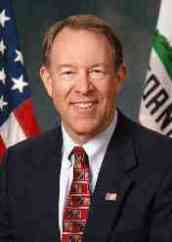From Board of Equalization Member Bill Leonard:
***Huge Tax Hike on Beer Drinkers***
 State law is full of gray areas and ambiguities. One old one is now the real culprit in this week’s headlines. When the Legislature wrote the first alcohol laws after Prohibition was repealed in 1933, California defined what a beer is and what wine is. The definition was simple – anything added to beer or wine renders it something else. Sometime thereafter beer and wine producers started adding things such as preservatives, flavor enhancers and other things. So narrowly reading the law there is NO such product as either beer or wine sold in California today. Now common sense and alcohol regulators know that is not true and so for years have ignored this narrow interpretation.
State law is full of gray areas and ambiguities. One old one is now the real culprit in this week’s headlines. When the Legislature wrote the first alcohol laws after Prohibition was repealed in 1933, California defined what a beer is and what wine is. The definition was simple – anything added to beer or wine renders it something else. Sometime thereafter beer and wine producers started adding things such as preservatives, flavor enhancers and other things. So narrowly reading the law there is NO such product as either beer or wine sold in California today. Now common sense and alcohol regulators know that is not true and so for years have ignored this narrow interpretation.
Last week a bare majority of the Board of Equalization voted for the narrow interpretation of the law, and have begun the process to tax all alcohols with any additives as distilled spirits. This will increase the taxes charged on beers, wines, flavored malt beverages, and flavored beers to the level on hard liquor. The objective offered was to reduce teenage drinking, which I support. However, there was little testimony that by increasing the tax on beers that teenagers would lose access to alcohol.
The dated California law defines beer as having no additives whatsoever. No beer that I know of – except perhaps some home brews – meets this definition. Alcopop-type beer products with some fruit flavors typically have alcohol content between 3.8 and 5 percent. Beers out of a bar tap can exceed 10 percent alcohol. The proponents are seeking to raise the tax on flavored beers from 20 cents a gallon to $3.30 a gallon, the rate for distilled spirits. The proponents say they are focused on these flavored beers but chemically and by alcohol content they are indistinguishable from all other beers and wine. Every product will potentially suffer this monster tax hike.
We need the Legislature to step in and provide the policy guidance that addresses teenage drinking and also “clean up” the code so that modern beer and wine is appropriately categorized in the law.

